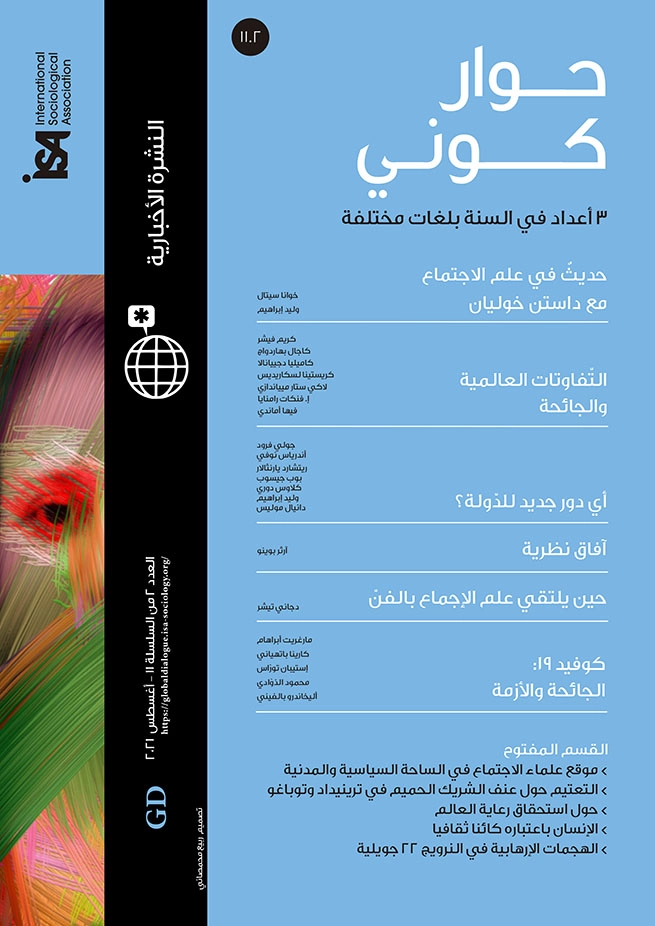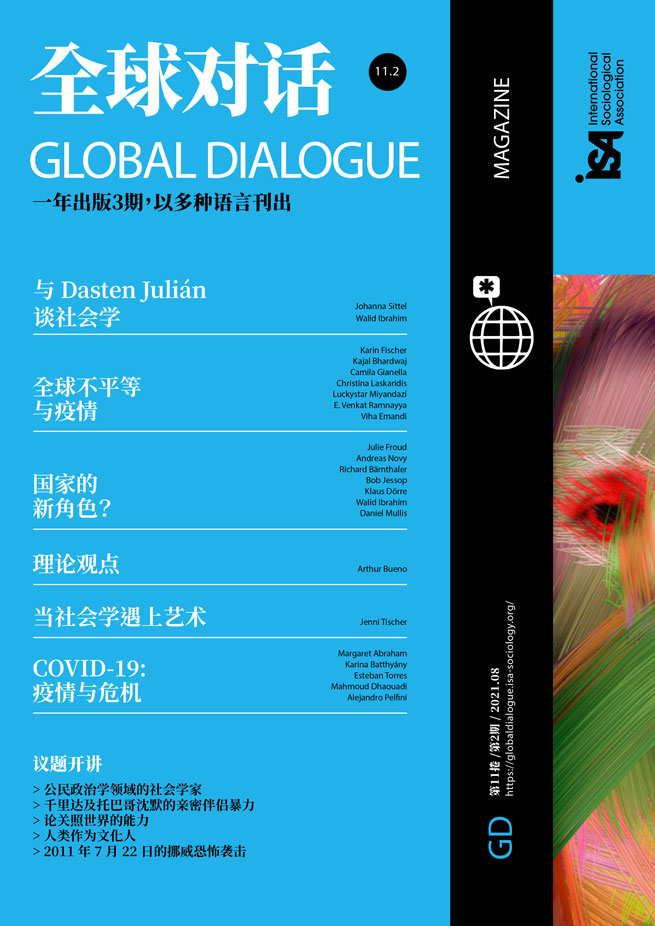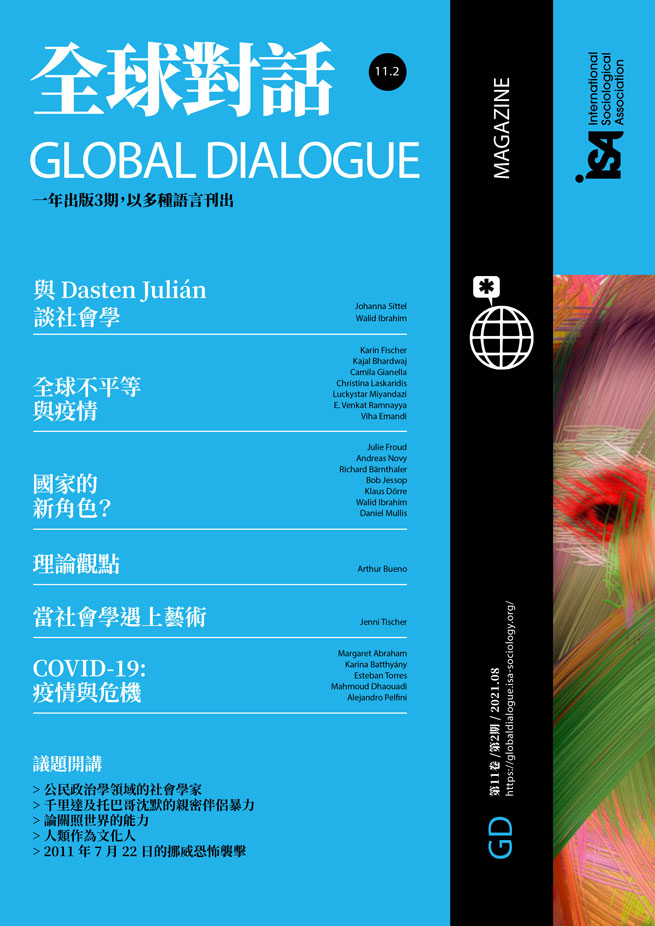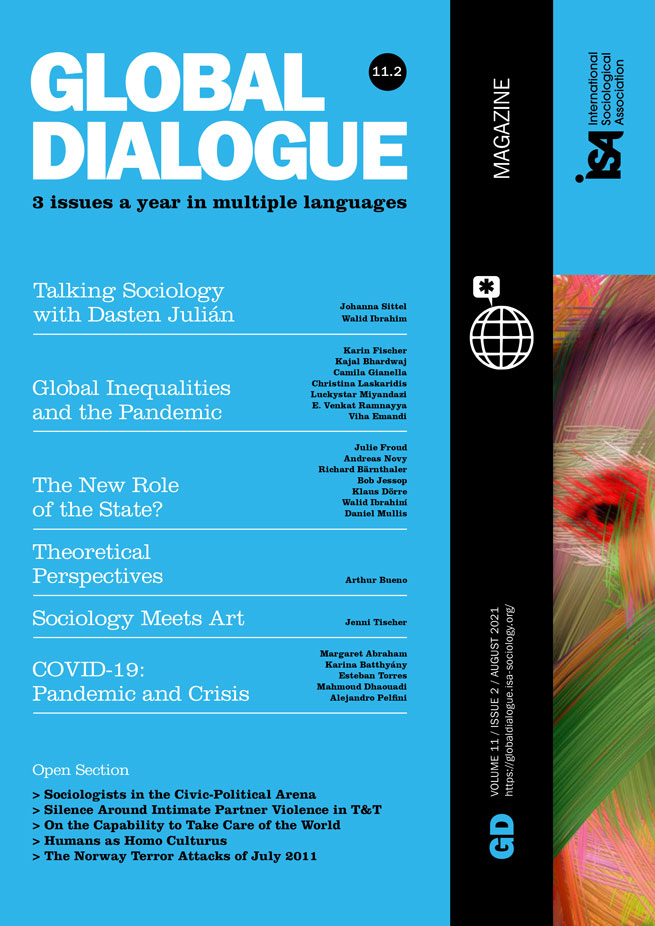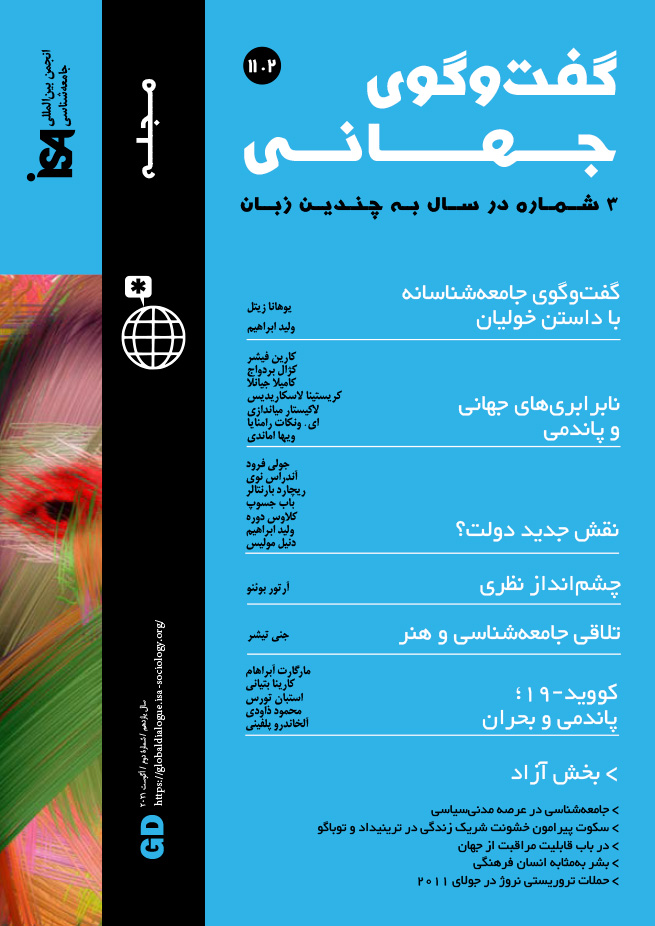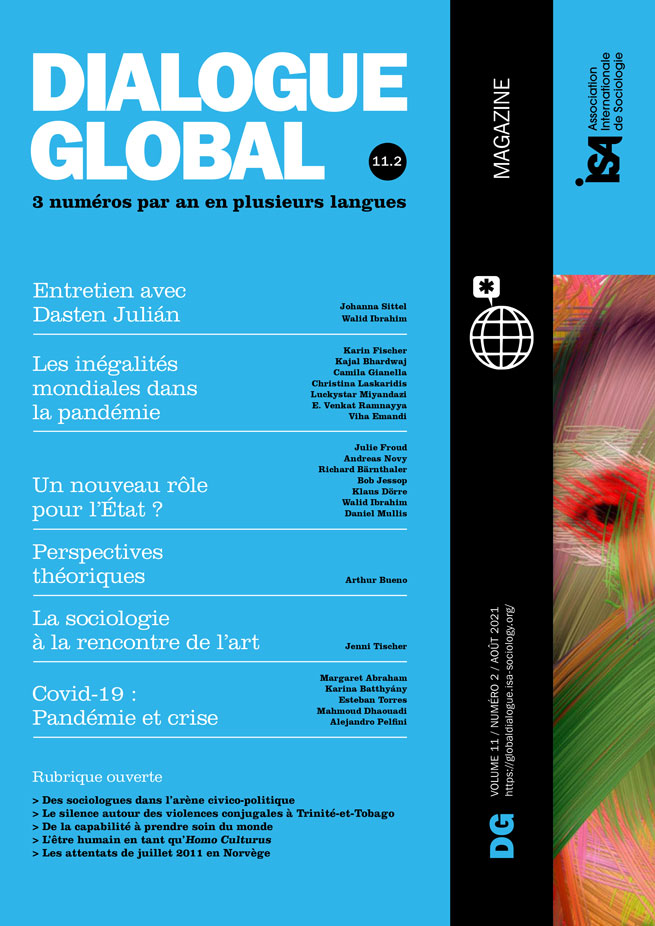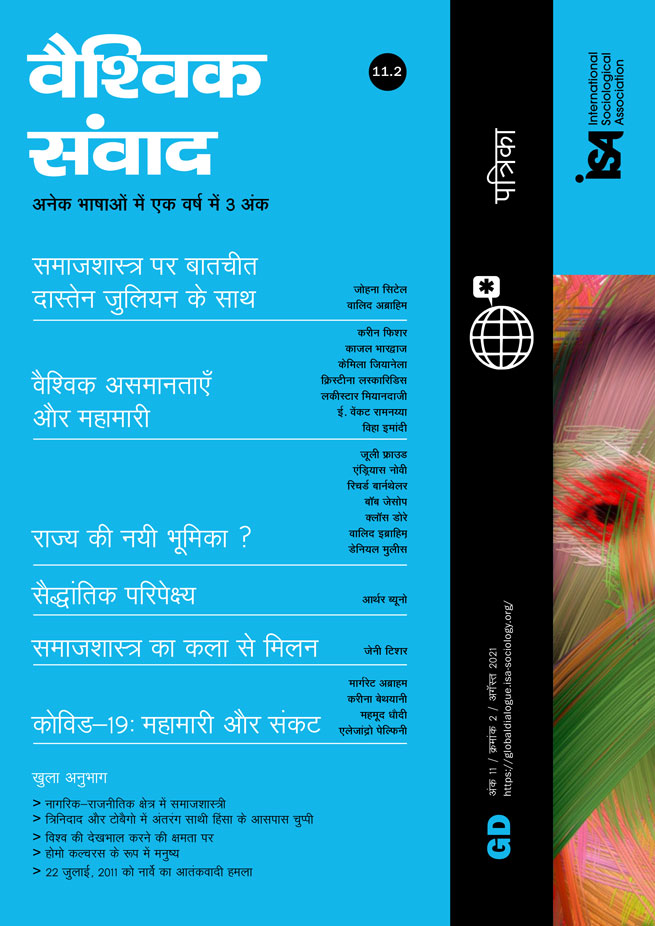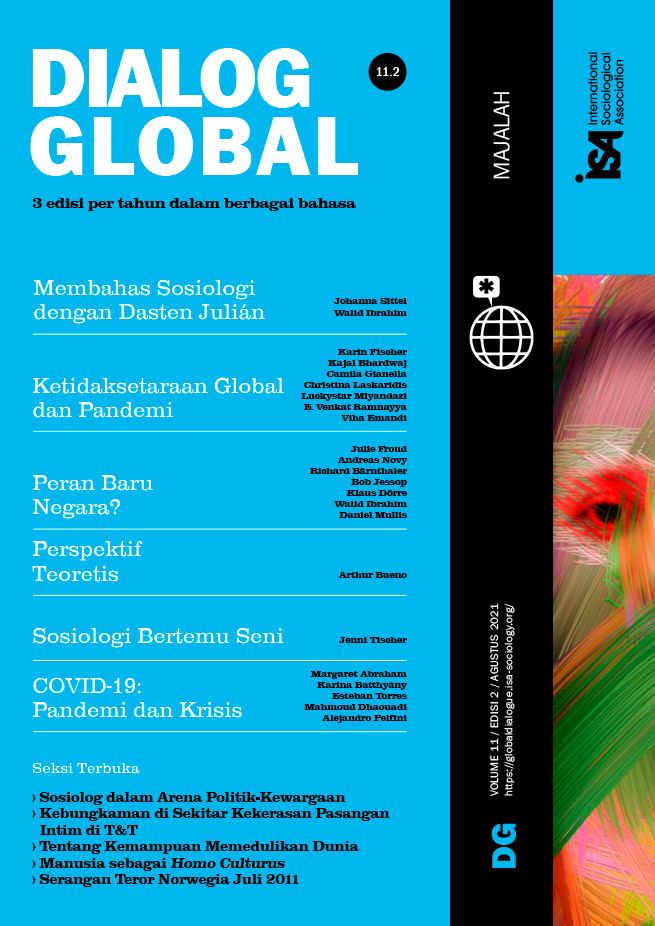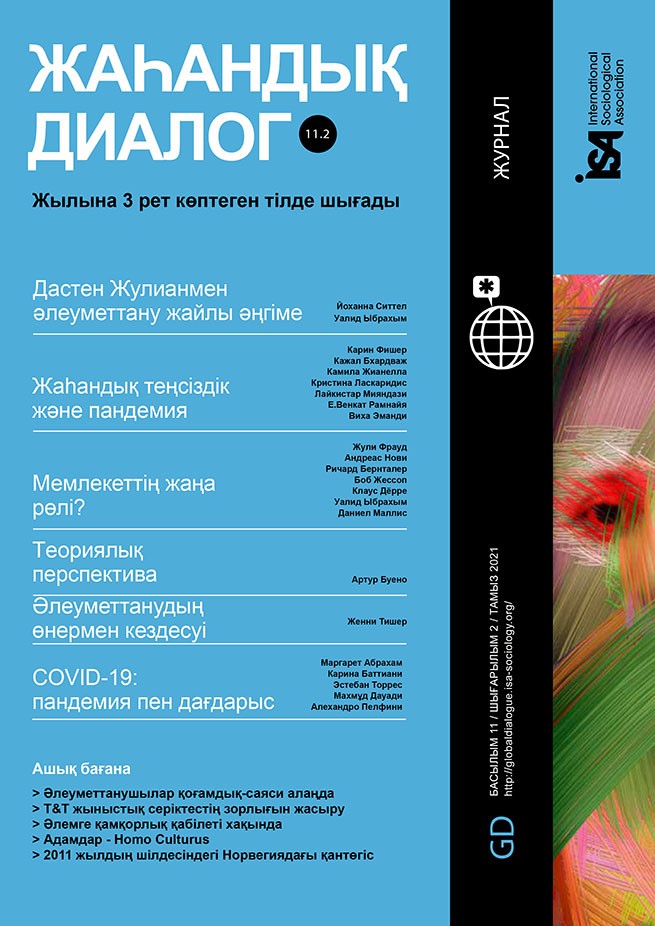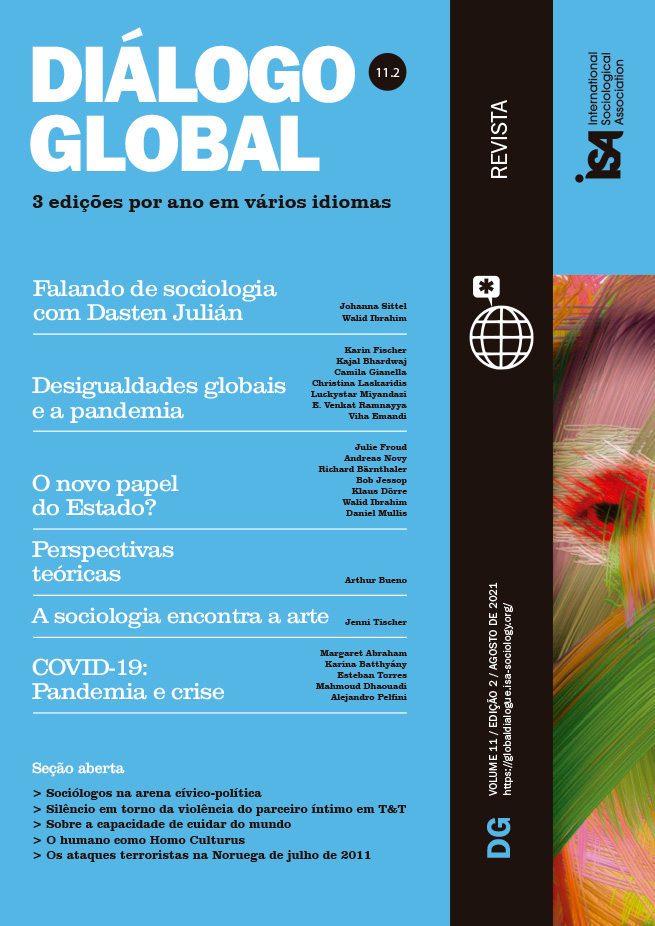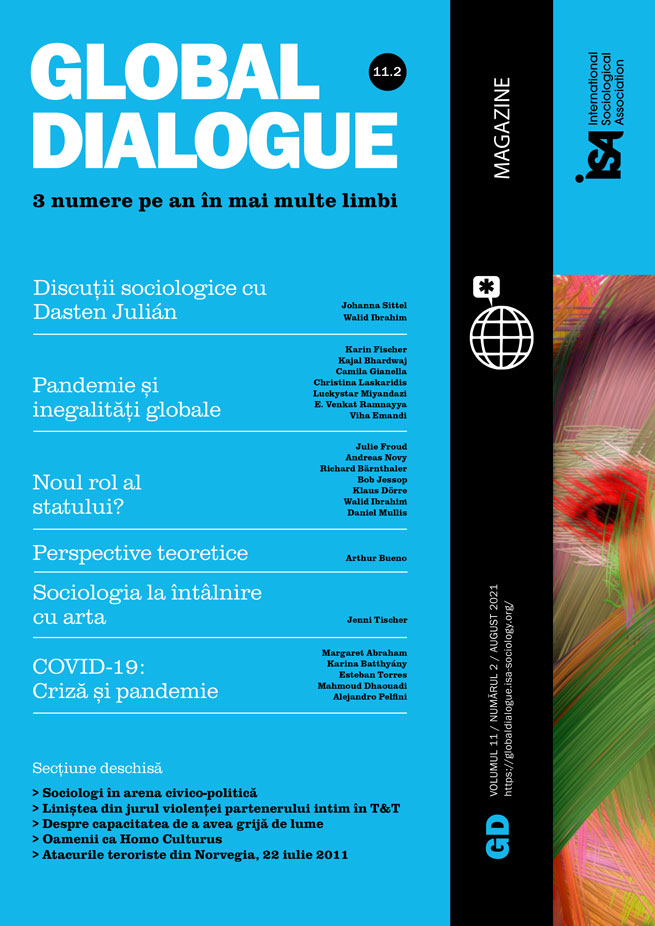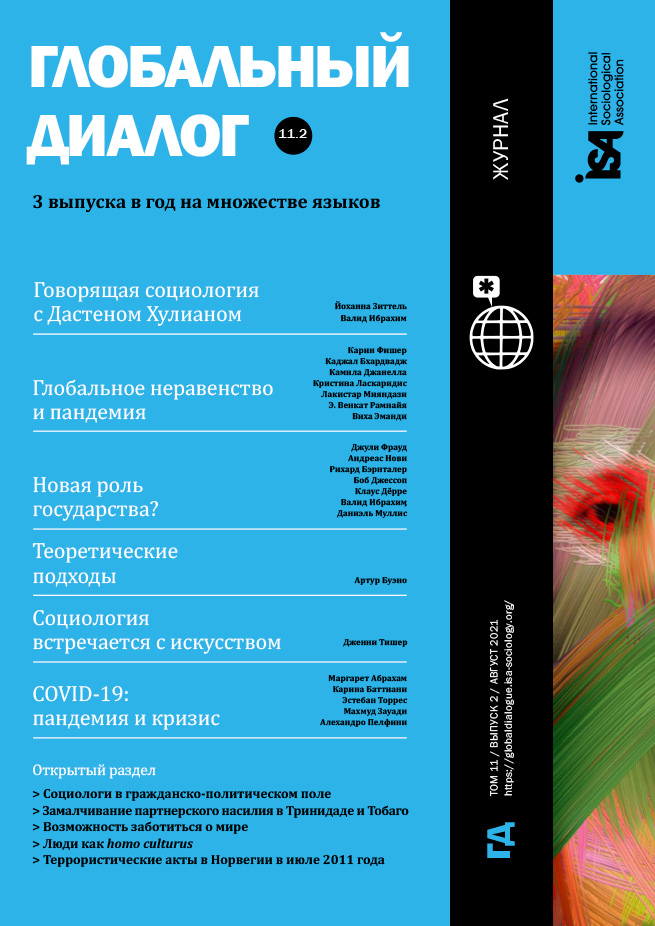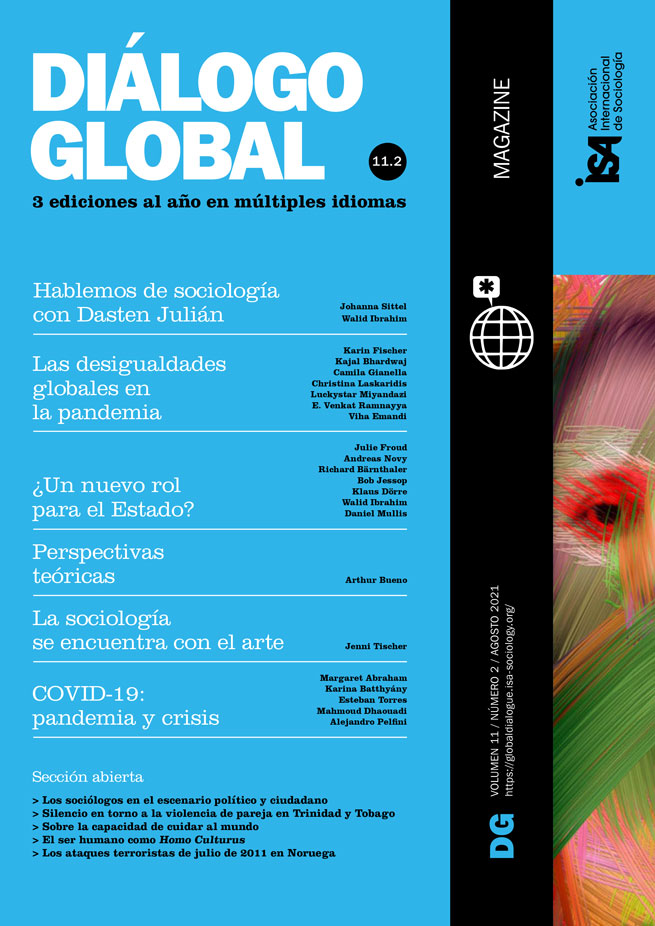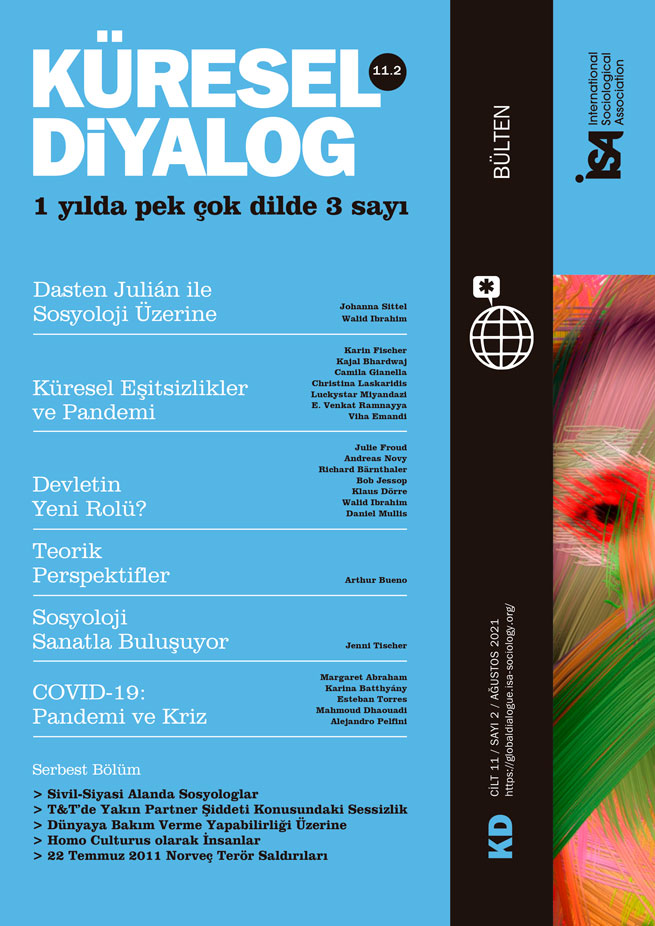Post-Pandemic Scenarios, from Adaptation to Collective Learning
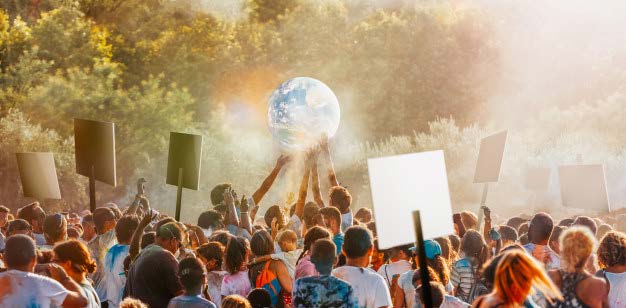
June 25, 2021
Although we are still in the middle of the COVID-19 pandemic and its effects and damages are difficult to calculate, as is the estimation of a date by which it will come under control, the social sciences have not stopped reflecting on possible scenarios for a post-pandemic world. The depth of the global crisis, as well as the unprecedented effects of the pandemic on daily life and on the functioning of capitalism in general have been so dramatic that this reflection goes beyond a speculation on the availability of vaccines, the recomposition of systems of public health, and international cooperation within the World Health Organization. Rather, and taking into account that the pandemic is a major civilizational challenge, it focuses on the capacity for real learning in extreme situations and for the resilience of entire societies in the face of traumatic situations in which societies and human beings share an unprecedented structural vulnerability.
Possible post-pandemic reactions
As the economist Branco Milanović has demonstrated, the international system and certain societies introduced important changes in their models of development and political organization following other global crises that went beyond the economic and included challenges to public health, or great wars, such as the crisis of 1873 or 1919. Hence, it is not utopian to consider that from this pandemic too, important changes will arise in modes of production, consumption, and lifestyles, showing once again the capacity of capitalism and modernity to adapt to new challenges and to rethink themselves. Of course, this is not guaranteed as such, but depends on the activation, first of reflection, and then of political action to promote those transformations.
For the moment, the first reaction and therefore one of the possible scenarios for the post-pandemic is the particularist retreat. As it has already been experienced in some countries (the US under Trump or Brazil under Bolsonaro), it is not worth dwelling too long on it. It is about continuing with business as usual, and promoting a return to normality by taking refuge in the nation-state, ignoring – as with other issues – the global implications of the pandemic and existing radical interdependencies. Instead, it is more interesting to explore two possible transformative scenarios that rely on the agency of human beings and on the reflexivity of societies. It is possible to distinguish two levels or degrees of transformation from these capacities: a first step linked to adaptation (understood as an adjustment of one’s own preferences and interests to the new complexity of the environment), and a second, more demanding process of collective learning (implying a review of the validity of these preferences and interests based on a moral obligation to reduce harm).
Adaptation
How, then, could a primarily adaptive scenario be conceived, in which the three fundamental social spheres (state, market, and civil society) develop a communicational adjustment to a more complex and challenging environment without thereby rethinking or completely abandoning settled practices that have already proven harmful? At the international level this would involve a strengthening of multilateralism. At the national level, the state would be more present, though at the same time as it invests in public health it will be more attentive to securitization and the surveillance of privacy. From the market we can expect greater commercial protectionism and public investment; a deepening of digitalization; the promotion of scientific cooperation, but without altering the protection of intellectual property. And, to a certain extent, a recovery of the productive economy and of the so-called essential goods and services will take place instead of pure financialization. By focusing on civil society, responsible consumption, subsidiarity, and self-care will be promoted, and attention will be paid to sustainable development, although within the framework of a low-intensity democracy.
Collective learning
A more demanding reaction with greater transformative potential implies a deeper collective learning process, which requires going beyond the order of negotiation and international cooperation to spaces of global governance focused on the provision and conservation of public goods, risk reduction, and the prevention of catastrophes. This is reflected at the national level in a state that centers its public policies around the notion of care and the reduction of inequalities in accessing public goods. In the field of production and consumption, short-distance logistics and local trade and production will be promoted, together with the strengthening of small cities and an economy based on the revaluation of “essential” activities; last but not least, the current North / South disputes over intellectual property and patents will pave the way to more equal and inclusive regimes. Civil society will be increasingly constituted as a network of “prosumers” (J. Rifkin), where the glocal level emerges and care networks that are sensitive to gender differences expand; spaces for transformability will be opened, inspired by alternative ideas such as post-development and degrowth in a process of politicization that accounts for a fundamental democratization in terms of equalization and access.
Which of these alternatives has more possibilities and on what does it depend to prevail? We are already conscious of the limits of the first non-transformative reaction and little can be expected of it. However, it is always a possibility to consider, and it still has its adherents. Capitalism and modernity have shown their capacity for adaptation and renewal, even incorporating the most radical criticisms that have been made of them (as demonstrated by Boltanski and Chiapello in The New Spirit of Capitalism). Hence, it is not unreasonable to think that the adaptive response is the most likely option and that it will occur almost mechanically from an interaction between expert systems, large corporations (especially those linked to digitalization), and political actors who think in the short term. Meanwhile, the most demanding collective learning depends on a radicalization and activation of social movements and popular organizations that go beyond a great plan of aid and prevention of health risks to aim for a Global Green New Deal, or better still, the Ecosocial Pact of the South – in which social justice is always thought together with environmental justice in a North-South dialogue, and in which, for once, the centrality of productive work is replaced by the primacy of life. Undoubtedly, this option is the least likely. But in light of the stakes, it is the most urgent and necessary.
Alejandro Pelfini, Universidad del Salvador, Buenos Aires, and FLACSO Argentina, Argentina <pelfini.alejandro@usal.edu.ar>

